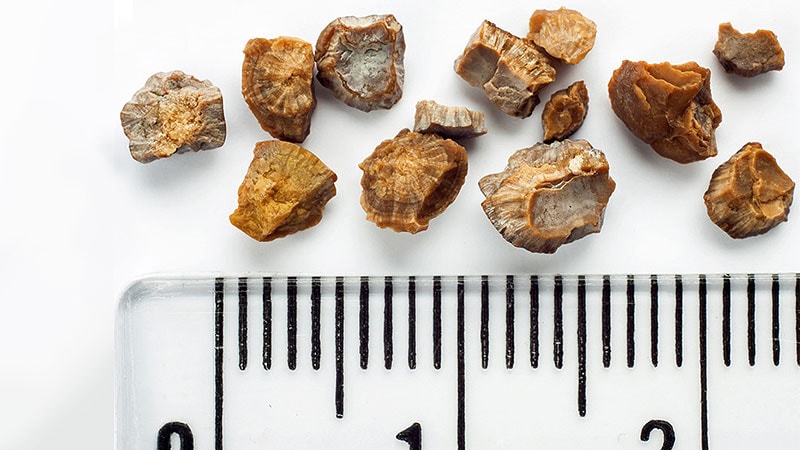This transcript has been edited for clarity.
Hello. I'm David Kerr, professor of cancer medicine at University of Oxford. Recent articles in The New England Journal of Medicine gave us some really interesting new insights into how we can continue to screen and improve screening for colorectal cancer. I've said many times before as a practicing cancer physician that prevention is better than cure.
As I become older and wiser, which is debatable, I do see the importance of screening, early detection of disease, and the impact that this has had in the reduction in incidence of colorectal cancer and improvement in survival rates. It's a big deal. The National Cancer Screening Programs for colorectal cancer have been genuinely, enormously impactful.
Any new tests that might help to move this field further forward are welcome. We know that, although we'd hope for a population uptake of 80% for whatever screening test is offered, usually it's less than 50%.
Whether it's fecal occult blood testing, whether it's blood, whether it's invasive tests like colonoscopy, sigmoidoscopy, you would imagine that the uptake of these tests becomes less frequent the more invasive the test becomes. We're falling short of our aim, or our global standard, of 80% of the relevant population tested with whatever modality.
There's a nice article by Chung that I think does bear reading and interrogation. They looked at cell-free DNA, so it's a blood test. It's using a commercially available test that is quite interesting. It looks at plasma cell-free DNA. There are three elements to the test: One is looking at methylation patterns; one is looking at fragmentomics, which is the pattern of fragments of DNA that you find circulating. The third is looking for somatic mutations in two biologically important genes for colorectal cancer, KRAS and APC. The different elements of that test are merged bioinformatically into an output of some sort. They looked at almost 8000 patients that had a median age of 60 years.
They demonstrated that the test detected colorectal cancer with a sensitivity of 83%; advanced neoplasia, looking at different stages (I, II, and III) of colorectal cancer, with a specificity of 90%; and advanced precancerous lesions, including adenomatous polyps and sessile serrated lesions, with a sensitivity of only 13%. Perhaps some evidence suggests that specificity for detecting advanced neoplasia was inversely correlated with age.
At its most basic, Chung and the team have demonstrated the feasibility of using cell-free DNA as a screening test for colorectal cancer. The relatively low sensitivity for detecting precancerous lesions is something of a limitation. It's a step in the right direction and a fascinating application of DNA technology at the highest level, one would have to say, but it falls quite a bit short in terms of sensitivity for detecting precancerous lesions compared with sigmoidoscopy or colonoscopy.
I think more work needs to be done. We need some work around cost-effectiveness. We need to understand better the potential reduction in sensitivity with age. What underpins that? It's impossible for us to dissect out of the three elements of the test — methylation patterns, mutation screening, and fragmentomics — whether there was one particular part that tended to decrease with age.
We don't know because the data are fully integrated. We need a bit more information and perhaps we need further prospective trials to understand just what truly the impact would be. What it shows, though, is that it's an area of active research.
In the same issue of The New England Journal of Medicine, we saw some interesting advances being made in fecal occult blood testing. The field is moving and focusing. In addition to us being cleverer with the tests that we apply, we need to make them more available and to encourage more of our fellow citizens to participate in screening programs.
Prevention is better than cure. The application of clever technology is moving the field forward, but we need better uptake or tests that are more appealing to the citizens that we're interested in. One of the areas that we've talked about before that I'm interested in is looking at DNA polygenic risk scores, and looking at patterns of inherited single nucleotide polymorphisms.
We may need to bring these different groups together to integrate stool, the test that we just discussed, and look at these polygenic risk scores to see if we can combine them to be even better.
Have a look at the issue of The New England Journal of Medicine. I think you'll find it interesting, and you'll see that we're starting to map out an improved and positive way forward for bowel cancer screening.
Thanks for listening. I'm grateful for any comments that you might have or would wish to make. For the time being, Medscapers, ahoy. Thank you.

.webp) 1 week ago
9
1 week ago
9

























 English (US)
English (US)